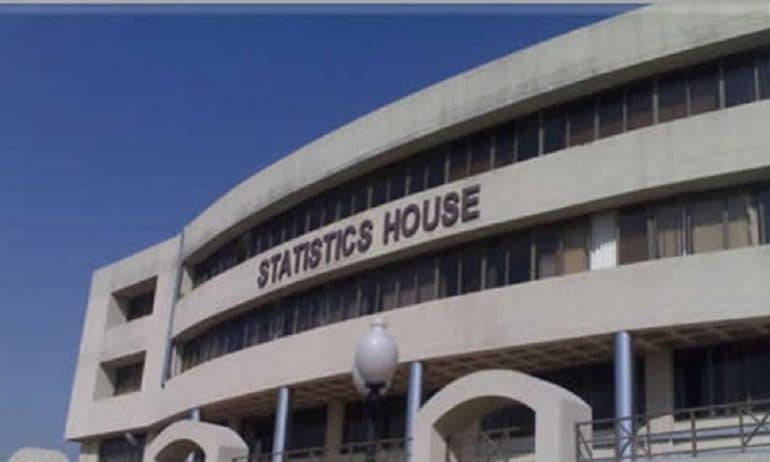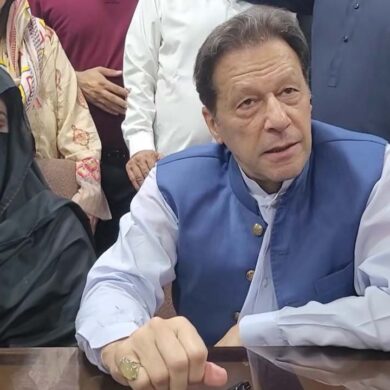According to statistics released by the Pakistan Bureau of Statistics (PBS) on Tuesday (30 December), consumer prices continued to rise in November, with inflation rising to 11.5 percent from 9.2 percent, the largest increase in 20 months, owing to a record increase in gasoline costs last month, according to statistics released by the Pakistan Bureau of Statistics (PBS) on Tuesday.
Import-led inflation was fueled by the significant rupee devaluation. Inflation, as measured by the Consumer Price Index (CPI), reached its highest level in 20 months, during which time global oil prices continued to rise gradually, eroding previous gains.
At the same time, fresh vegetable, fruit, and meat costs have been steadily rising in both urban and rural areas.
Inflation climbed to 9% on average from July to November. After soaring to 12.4 percent in February 2020, inflation began to decline, owing to a drop in agricultural product prices. On the heels of a spike in petroleum product prices, the trend is now reversing.
Annual CPI inflation in 2020-21 was 8.90 percent, down from 10.74 percent the previous year.
Pakistan’s inflation rate is driven by demand variables, international commodity prices, exchange rate, seasonal factors, and economic agents’ expectations about future changes of these indicators, according to the finance ministry’s monthly outlook report.
Inflation has grown somewhat year on year (YoY) in the recent two months. In the future, the seasonal profile, which was positive in October but is generally approximately neutral in November, may soften this increase in inflation.
Administrative and relief measures, in addition to government policy, may help to alleviate inflationary pressures.
However, in post-Covid scenarios, the price of crude oil, as well as all other energy inputs, is rising due to rising global demand. In addition, increased freight charges have increased the cost of international trade, causing worldwide inflation to rise. On a year-over-year basis, the international price of crude oil increased by 106.7 percent.
Currently, the government is issuing Agri-loans to enhance farm productivity for food security and self-sufficiency in order to combat food inflation.
While the finance division predicted in a previous report that inflation would remain between 8.5 and 9.5 percent in November due to new pricing impulses and the low base impact, inflation in November has already surpassed the projected level.
Food inflation is high, with annual increases of 11.9 percent and monthly increases of 3.9 percent in November in urban areas, compared to 8.6 percent and 3.3 percent in rural regions, respectively.
Food costs have grown globally due to a lack of materials and rising demand, according to a finance division report. Pakistan has been impacted as well, as it is a net importer of food, particularly wheat, sugar, lentils, and edible oil.
The government has already announced a package of Rs120 billion, jointly sponsored by the federal and provincial governments, to provide a 30% discount on ghee, flour, and pulses to 130 million less fortunate individuals, according to the article.
According to the PBS data, food goods in metropolitan areas that suffered price increases in November compared to the previous month included:
- Tomatoes 131.64pc.
- Mustard oil 11.6pc.
- Vegetable ghee 10.87pc.
- Vegetables 10.47pc.
- Eggs 10.19pc.
- Cooking oil 9.71pc.
- Potatoes 8.85pc.
- Honey 5.61pc.
- Fruits 4.37pc.
- Pulse masoor 3.14pc.
- Meat 2.63pc.
- Milk 2.33pc.
- Fish 1.90pc.
- Gram whole 1.77pc.
- Rice 1.73pc.
- Sugar 1.43pc.
Onions were down 7.97%, the chicken was down 4.34%, and pulse moong was down 0.69% in urban areas.
Average inflation, as assessed by the Sensitive Price Index, increased to 18.1 percent in November from 15.2 percent a month earlier, while the Wholesale Price Index increased to 27 percent from 21.2 percent.



